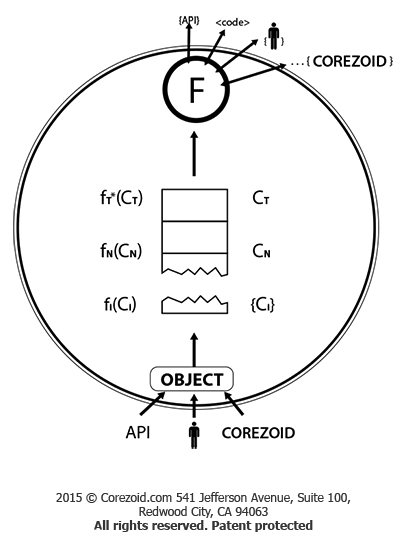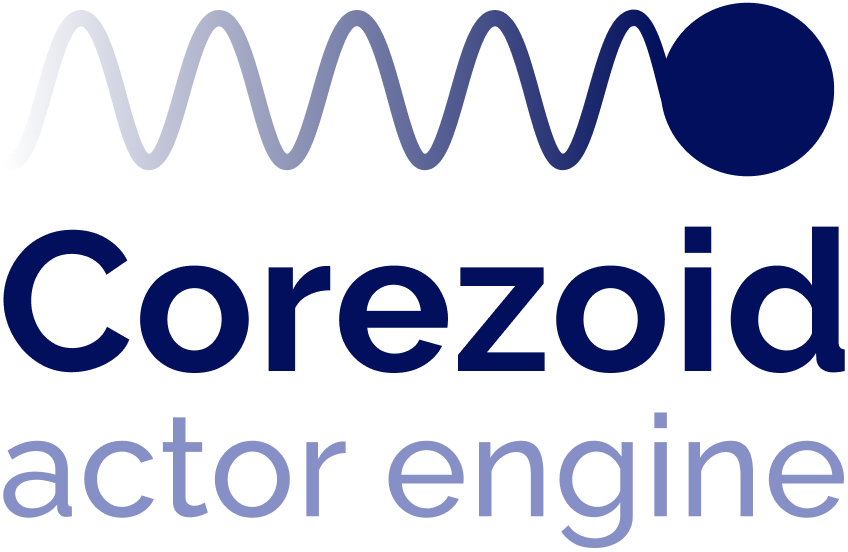- Print
- DarkLight
- PDF
Account is a space where you can see users of your Workspace and invited ones, created groups and groups you are invited to join, created API keys, and settings.
Alias is a type of Corezoid object that is used to replace numeric object identifiers with symbolic ones specified by a user.
API key is a unique identifier used to authenticate requests made to an API. API keys are often provided by the API provider and are unique to each application.
Communications Orchestrator is a set of ready-to-use Processes for creating and managing bots in different messengers.
Corezoid API is an interface provided by Corezoid, a cloud-based actor engine, that allows developers to interact with Corezoid's services and functionalities programmatically. With the Corezoid API, developers can integrate Corezoid's capabilities into their own applications, platforms, or systems, enabling them to automate and manage business processes, workflows, and data interactions.
Counter represents values without any associated actions; it can be system-level or user-defined.
Database is a connection between the actual database and a Process where you use the Database Call node.
Dashboard is a tool designed to collect and visualize statistics and reports related to Processes and State Diagrams.
Folder is a place to store and manage related Processes, State Diagrams, Dashboards, and other objects.
Function is an operation that needs to be performed on the object from the queue in a node. Functions can be added as an API, program code, another process, and so on.
Group is a group of users that have similar roles, permissions, or characteristics. You can create and use groups to facilitate the management of users and their access to projects or other objects within Corezoid.
Logic represents tools for managing logic within a node. It can be:
- System logic T that specifies the maximum time an object can stay in a node.
- System logic N that specifies the maximum number of objects that can be in the queue in a node.
Merge is an operation available for stages and versions in projects. It adds data from a stage, version, or file (exported stage or version) to another stage. Thus, you can have a stage or version or a stage/version file as a source and an existing stage as a target.
Node is a universal computational element (UCE) that represents the state of an object.

Nodes have characteristics such as queue, functions, logic, and counters. In the picture below, you can see the schema of the node functioning, where:
fis the request for the appropriate function node (i).Fmeans that each node receives a corresponding function that a human, API, code, or another node can implement.Cтis a counter, and T is time for the oldest object in the queue.Cnis the number of objects in the queue.{Ci}represents custom counters.

Parameter is a variable or value passed into a function or command to influence its behavior. Parameters can be:
- Global: These are the parameters defined by the system. You can use them, but you can’t customize them.
- Local: You can add these parameters manually to your Process or State Diagram.
Process represents an algorithm, process, or program implemented using a sequence or set of nodes.
Profile contains all user personal data including username, email, account ID, personal information, and billing details.
Project is a place to store and manage related Processes, State Diagrams, Dashboards, and other items.
Queue means the queue of tasks in a node.
Stage is an environment where you can store your Processes, State Diagrams, and so on to test and work on.
State Diagrams are used to:
- Track and manage various user states
- Order medications, food, and other items on schedule
- Share information on promos, advertising news, discounts, and so on
Sync API is an API provided by Corezoid that enables synchronous communication between external systems and Corezoid Processes.
Task refers to a set of parameters that characterize an object. The information related to an object is processed in a node based on specific rules.
User is an individual who interacts with Corezoid for various purposes, for example, creating a project, configuring Processes, setting nodes in Processes, and so on.
Variable is a stage object where data can be stored and used in API Call and Start nodes. Variables store data in the RAW and JSON formats.
Version is a snapshot of a stage containing all its objects but not containing its tasks.
Workspace is the main environment where you work, create projects, send tasks to Processes and State Diagrams, use dashboards to analyze data, and so on.

